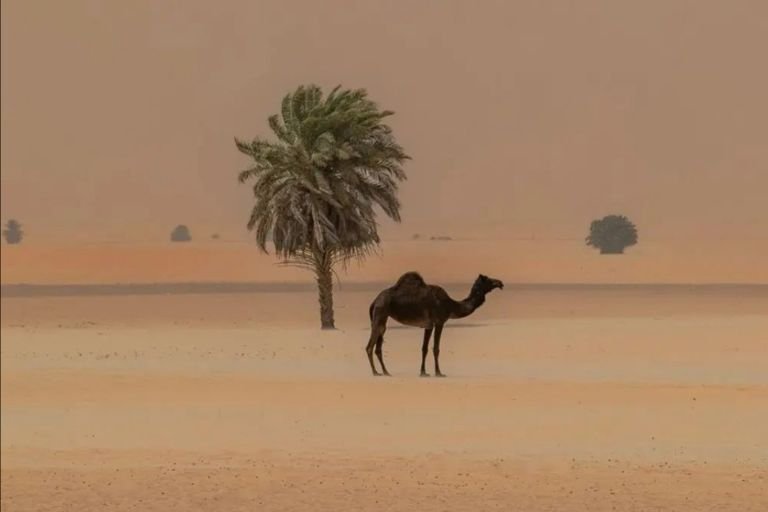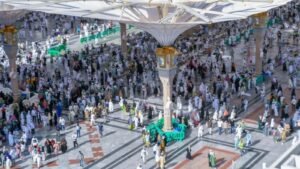For centuries, camels, known as the “ships of the desert,” have been vital to the Arabian region and its people. They have served as dependable companions to the Bedouins during their travels across sandy dunes, reflecting the resilience of ships navigating turbulent waves.
Camels played a vital role in establishing the Saudi state under King Abdulaziz Al-Sauds leadership. They served alongside horses to unite the land.
Beyond providing food and clothing through their meat, milk, and wool, camels have been essential to the tribal way of life in Saudi Arabia for generations.
In acknowledgment of Saudi Arabia’s commitment to maintaining its historical and cultural identity, 2024 has been designated as the Year of the Camel by the Cabinet.
Camels earned the nickname “ships of the desert” due to their adaptability to the harsh desert conditions, where water and vegetation are scarce. Their ability to endure thirst comes from unique physiological adaptations, allowing them to tolerate significant water loss.
A 2021 study in the scientific journal Nature explored the role of Arabian camel kidneys in adapting to harsh desert conditions and enduring periods without water. Their kidneys generate urine with a high concentration, reducing water waste.
Camel owner Isa Shuraim from Al-Jouf Region highlights the ancient bond between humans and camels, noting that camels can recognize their owner’s voice and even the sound of their car.
Camels are celebrated in local culture through government-supported festivals and races. The first camel race in the Kingdom occurred in Al-Jouf Region in 1383 Hijri.
Archaeological discoveries, such as the Camel Site in Sakaka, Al-Jouf Region, indicate the longstanding relationship between the Arabian Peninsula’s people and camels, dating back to the Neolithic period.
The King Abdulaziz Camel Festival in Al-Sayahid, northeast of Riyadh, is an annual event aiming to deepen appreciation for camels in Saudi and Arab culture while promoting the preservation of distinguished camel breeds.
In the Year of the Camel, the Ministry of Culture will oversee various initiatives and programs showcasing the value of camels and their connection to Saudi identity. These efforts aim to enhance the camel sector’s development and its contribution to the nation’s overall progress. — SPA
Image source: Maxime Seltenrijch





Pingback: Saudi Ajwa Dates: 5 Powerful Benefits for Men